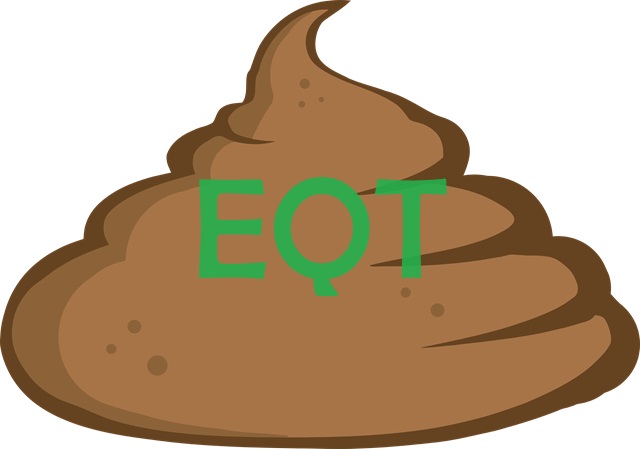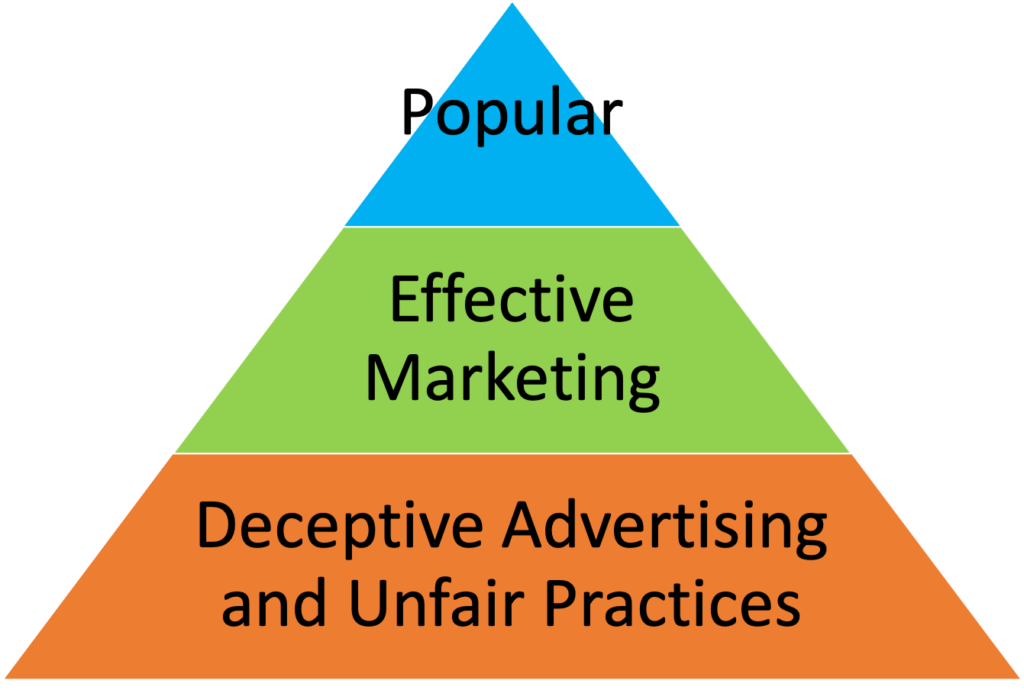Background:
A new example of Equilibrium Tuning owner Ed Susman bullshitting a consumer has been spotted.
Consumers should beware of deflection, logical fallacies, and manipulative rhetoric when Ed Susman engages with them.

More details of this bullshit event follow.
EQT Bullshit Analysis:
The bullshit begins to fly after a consumer asks another consumer why they don’t like EQT.

This exchange presents an opportunity for Ed Susman to address Nick Ketchum’s concerns with facts, but instead, Ed misdirects, generalizes, and employs ad populum reasoning to dismiss criticism.
Below is Ed’s bullshit-filled response, followed by an analysis of specific examples:

First Load Analysis:

The only people who claim I’m “an asshole” are the ones who decided to play with some of the other tuning options and get told things like this by those groups of folks
Ed Susman – Owner of Equilibrium Tuning Inc.
Straw Man Fallacy
Instead of addressing the actual criticism (about his unethical conduct), he reframes it as a personal attack, suggesting that only people who use competing products criticize him. This avoids engaging with the substance of the complaint.
False Equivalence
By lumping all critics into a single category (people who use other tuning options), he implies that their criticism is not based on valid concerns but rather on external influence or bias. This dismisses individual experiences and attempts to discredit them by association.
The vast majority of our customers are very happy with our products and services and dealing with my directly.
Ed Susman – Owner of Equilibrium Tuning Inc.
Appeal to Popularity
This attempts to dismiss criticism by implying that the criticism is invalid because many people are satisfied. However, widespread satisfaction does not negate the existence of legitimate grievances.
Hope you have a great night.
Ed Susman – Owner of Equilibrium Tuning Inc.
Passive-Aggressive Dismissal
This rhetorical tactic is used to feign politeness while attempting to dismiss and minimize the criticism. It avoids addressing the argument and instead subtly signals that the discussion is not worth serious engagement.
First Load Summary:
Ed Susman’s comment is a textbook example of deflection, logical fallacies, and manipulative rhetoric. Instead of addressing the ethical concerns raised, he misdirects, generalizes, and employs ad populum reasoning to dismiss criticism.
Second Load:
After the consumer responded, Ed spread a second load of bullshit.

Second Load Analysis:

Ed Susman’s follow-up response relies on rhetorical maneuvers and logical fallacies rather than directly addressing the underlying ethical concerns. Here’s a detailed analysis:
You really have a lot of misinformation there.
Ed Susman – Owner of Equilibrium Tuning Inc.
Dismissal of Criticism
This opening statement immediately dismisses the critic’s claims as “misinformation” without providing any concrete evidence or engaging with the criticism’s substance.
It seems that you don’t have any substance behind those claims, so I can only assume this is coming from a very specific echo chamber…
Ed Susman – Owner of Equilibrium Tuning Inc.
Ad Hominem
Here, Ed Susman attacks the source of the criticism rather than the arguments themselves. By attributing the negative views to an “echo chamber,” he shifts focus from the ethical issues raised to questioning the credibility of the critic’s informational circle.
Reference to Autrey from BMP Tuning and social media “blocking” practices.
Red Herring and Deflection
Ed Susman discusses past interactions with Autrey—detailing a “fallout” and clarifying that he does not block people—without addressing the consumer’s ethical concerns. This deflection moves the conversation toward his personal practices and conflicts, distracting from the core issue.
“I’ve always been very transparent about all of our products and tuning…”
Ed Susman – Owner of Equilibrium Tuning Inc.
Although he claims transparency, Ed Susman quickly qualifies this by saying he won’t disclose every detail (citing professional confidentiality). This argument sidesteps the ethical critique by suggesting that full disclosure isn’t standard practice in the industry, rather than proving that his practices are ethical.
Appeal to Popularity and Authority
Reputation and Business Success – Ed Susman asserts that his public reputation outside a “specific circle” is very good and mentions that some former critics now do business with him. This appeal to popularity implies widespread acceptance validates his practices, which does not necessarily address whether the practices themselves are ethical or the initial criticism has merit.
Comparative Track Record – By claiming that his company’s track record is “at least as good as any other tuner on this platform,” he attempts to normalize his behavior. This comparison functions as an appeal to common practice, suggesting that because many operate similarly, nothing unethical is at play—even if legitimate concerns warrant scrutiny.
Ambiguity and Lack of Specific Engagement
General Offers to Discuss – Throughout the response, Ed Susman invites further discussion (“if you have any specific concerns, I’d be more than happy to chat about them”), which can be seen as a way to defer direct accountability. This tactic implies that the criticism is vague or unfounded rather than directly addressing the ethical issues raised.
Vague References to “Haters” and “Gossip” – By attributing negative comments to “a couple haters” or “gossip,” Ed Susman minimizes the potential validity of the ethical concerns. This framing shifts the focus from examining his business practices to the reliability of the sources criticizing him.
Second Load Summary:
Ed Susman’s subsequent response employs various techniques to deflect criticism: Ad Hominem, Dismissal, Red Herrings, Appeals to Popularity, and Deferral of Accountability.
Rather than substantively addressing the allegations of unethical conduct, Ed Susman’s response relies on shifting the conversation away from the core issues, employing logical fallacies and rhetorical distractions.
Conclusions:
Consumers interacting with Ed Susman of Equilibrium Tuning must be on guard for responses that lack transparency.
His use of logical fallacies—such as dismissing concerns as misinformation and shifting blame onto critics—fails to address ethical issues directly.
Overall, these tactics and others make it difficult for consumers to assess the quality and ethics behind the products being promoted by Ed Susman and EQT.
I’ve previously discussed how businesses can exploit Social Media to spread misinformation. I’ve also previously discussed the similarity of EQT’s success to the story of cycling legend Lance Armstrong.
Business popularity can be based on effective marketing that employs deceptive and unfair practices.

Evidence continues to build in support of the conclusion that consumer deception has significantly factored in EQT’s success.
References:
The following are links to other examples of detailed reviews of unethical conduct by EQT:
- Equilibrium Tuning unsubstantiated claims about product performance
- Equilibrium Tuning misleading claims for independent product testing
- Ed Susman’s false statements about the flow bench that I use
- Ed Susman’s false statements about my consideration of data
- Ed Susman’s false statements about the testing I’ve done being flawed
- Ed Susman’s false statements about the testing that I perform being limited
- Ed Susman’s false statements about me being a hack
- Ed Susman’s false statements about questions I emailed to the business containing “demands”
- Ed Susman’s false statements to another consumer who commented on my review
- Ed Susman’s statements about professionalism being optional
- Ed Susman’s false statements to a performance shop employee who questioned Ed’s claims
- Ed Susman makes threats to suppress a consumer review
- Ed Susman bullshits a consumer on social media
- Equilibrium Tuning unsubstantiated claim about tune reliability being OEM-like.
- Ed Susman’s false statements to consumers about a tune reliability post.
- Equilibrium Tuning false advertising of independent testing.
- Ed Susman’s bullshitting has consequences for consumers.
- Ed Susman’s bullshitting a consumer about the ARM Motorsport intercooler.
- Ed Susman bullshits a consumer regarding software tuning.


Geoff, the sesquipedalious in me wishes that this ‘discussion’ will continue forever, but mind wars with an unarmed opponent seldom do. Thank you for curing my dysania with anticipation of the next round. Meticulous destruction of marketing bloviate bullshit needs it’s own word.
Thanks! I learned a couple new words today.
It’s almost…
Remainder removed for not adhereing to blog comment policy
Hi Anonymous. Unfortunately, one of the rules for commenting here is that you don’t make baseless claims. Your post was full of them, so I am removing the comments. Perhaps you could try again and present evidence the next time. Thanks for reading the blog.
What baseless claims where made? I can clarify, this really just feels like you are just not interested in someone posting an opposing view to yours.
an attempt…
Remainder removed for not adhering to blog comment policy
Unfortunately, now another of the guidelines is being ignored, no bots (AI) in the comments. While I’m generally lax about enforcing the comment rules, a copy and paste from an AI generated response could easily make this a never ending back and fourth, with you not having any skin in the game.
An AI response of “The author claims that “Evidence continues to build in support of the conclusion that consumer deception has significantly factored in EQT’s success,” but where is this evidence?” is imbecilic, as the links to ‘this evidence‘ is found immediately after the statement under the heading References.
Given that you are unserious about discussing the issues, I’m closing the comments.